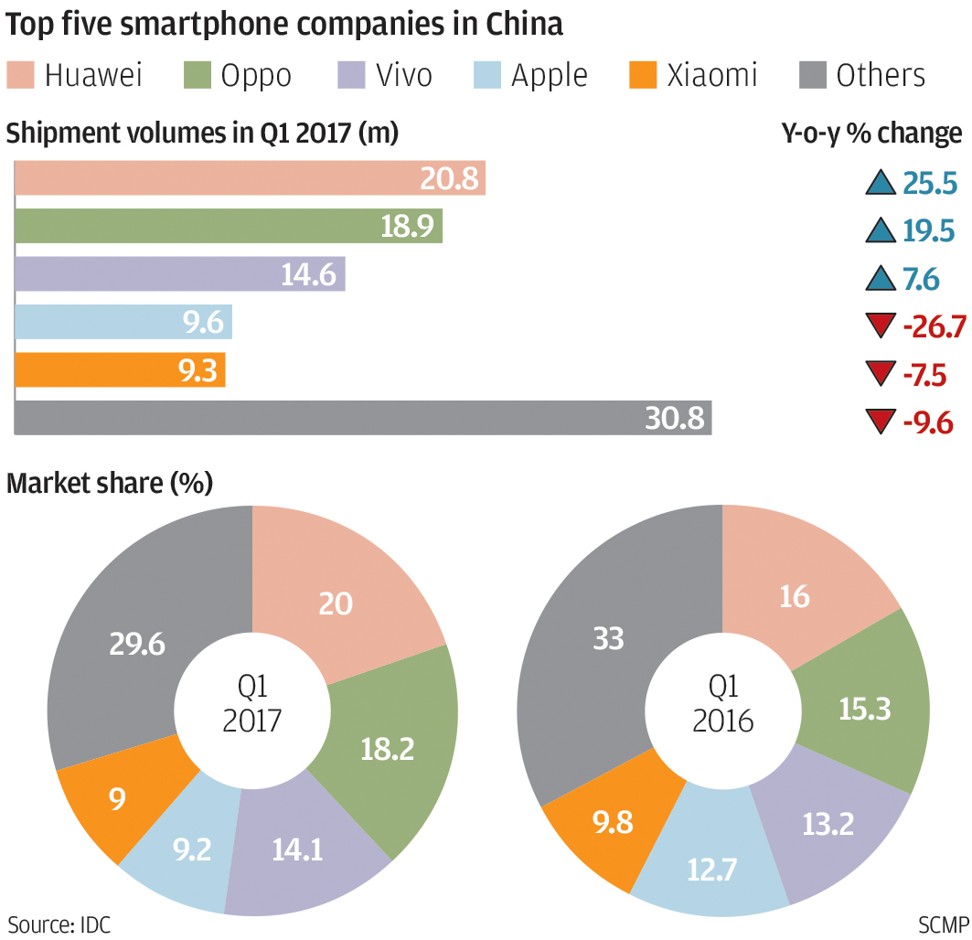
Xiaomi aims to ship more than 100 million phones in 2018
Chinese smartphone maker Xiaomi, once hailed as China’s answer to Apple Inc’s iPhone, said it’s aiming to ship more than 100 million phones in 2018, in a sign that it’s found a way out of its sales slump in its home market and abroad.
The Beijing-based company shipped 23.16 million smartphones in the second quarter, a 70 per cent jump from the previous quarter and a record since the company began making phones seven years ago, successfully regaining its traction, said chief executive officer Lei Jun.
“At the beginning of the year, I set a small target to have more than 100 billion yuan (US$14.7 billion) in sales this year,” Lei said in a memo to employees. “Now we can see that we have a very good chance to reach the target. So we are adding a new target for shipping more than 100 million units of phones next year.”

Lately, the strategy had been squeezed by competitors from two sides in China. On the low end, local brands Oppo and Vivo used brick-and-mortar stores to lure customers in smaller cities, while the high-end models by Huawei Technologies have attracted status-conscious customers away from Xiaomi.
Under siege, Xiaomi’s 2016 shipments slumped 23 per cent and its share of the market was just 8.9 per cent, lagging behind its three main rivals, according to IDC.
Lei said it’s very rare for a smartphone maker to be able to halt declining business and turn things around. He attributed Xiaomi’s success to its innovation, the adoption of a new online-and-offline sales strategy and its strong performance in overseas markets.
Xiaomi has opened 123 offline stores across China as of Friday, with another 14 stores expected to open on Saturday, lei said. Xiaomi is the second-largest brand in India, the company’s best overseas market, and has seen a 328 per cent surge in sales in the first half of the year.
He admitted the hyper competition in smartphone business will continue. But to keep a sustainable growth, Lei said there is no limit on investment. The company, which has 13,000 employees, is looking to hire more than 1,000 staff in the coming year to expand smartphone business, he said.

